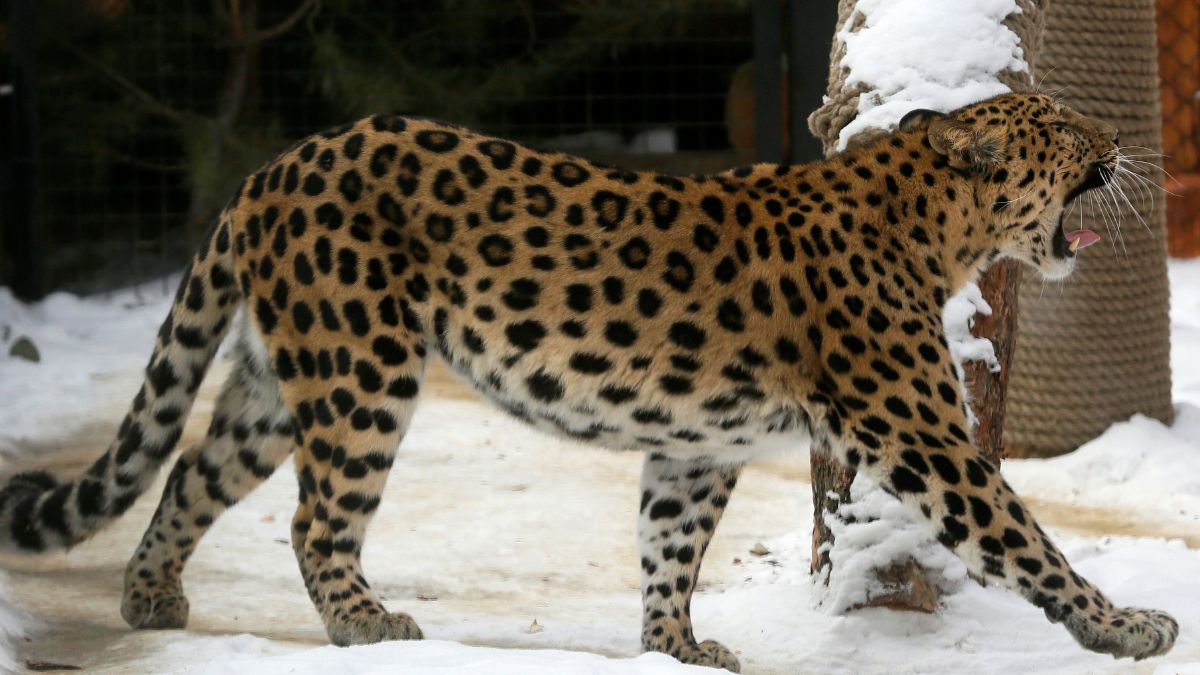North Koreans are hunting their wildlife, including tigers and leopards, to the edge of eradication. A new study has found that starving people in the East Asian country are eating these wild animals to survive.
The research, conducted by a team of British and Norwegian scientists, revealed that the ecological decline is being driven by the North Korean government and a flourishing regional black market. Published in the journal Biological Conservation in August, the study has shed light on the increasing need to conserve the wildlife in the hermit kingdom.
Let’s take a closer look.
How the study was conducted
North Korea is one of the most isolated countries in the world, making carrying out research almost impossible in the nation.
The findings are, instead, based on the interviews of 42 defectors in South Korea and Britain. Some of them were former hunters, soldiers, or admitted to trading in wildlife products.
Why North Korea is hunting its wildlife
The desperate population of North Korea are hunting, eating and selling wild animals.
Joshua Elves-Powell, of University College London, co-author of the study, said: “Almost every mammal species in North Korea larger than a hedgehog is opportunistically captured for consumptive use or trade. Even highly protected species are being traded, sometimes across the border to China.”
The North Korean defectors interviewed for the study said mass hunting was triggered by the severe famine in the 1990s that forced people to hunt for themselves.
This came following the end of Soviet aid that led to the collapse of the communist government’s state distribution system. Millions were left starving, with the death toll pegged at 3.5 million (35 lakh) out of a total population of 22 million (2.2 crore).
Impact Shorts
More ShortsMany interviewees told Elves-Powell they did not have a choice. “If an animal is a resource that can be utilised by people who are in dire economic straits, as North Korea has clearly been going through, then it makes sense that they are going to be exploited for these people’s survival,” the British conservationist said to This Week in Asia.
While North Korea’s economy has improved, the animal trade has continued.
“The growth in the black market trade was closely tied to this period, but we have found that the mechanisms that were set up at the time to facilitate the trade have remained in place, even though the North Korean economy has improved,” Elves-Powell said.
The four-year research by scientists discovered that state institutions, including the Pyongyang Zoo, have also provided products that have eventually entered the international market.
“It should be shocking, but perhaps it is not really all that surprising. We know that tradeable goods have been taken from other state-run institutions in North Korea, such as factories, and have entered the black market trade,” the British conservationist said.
North Korea is among the few countries that are not signatories to the Convention on International Trade in Endangered Species of Wild Fauna and Flora (Cites), which regulates the international trade of threatened animals.
While North Korea has its own animal protection laws, which ban the harvest of otters and sable, they are hardly enforced.
The study found that the state collected wildlife products as tributes. Many of the skins and bones were funnelled over the border into China.
ALSO READ: Wild love: Why rich Pakistanis keep lions and other exotic animals as pets
Which species are being hunted?
The sable, once abundant on the Korean peninsula, has become “functionally extinct” in the North today, according to Elves-Powell.
Big cats such as the Amur tiger and Amur leopard are being hunted in North Korea. Bears, otters, deer and the long-tailed goral are being consumed. Goral is classified as vulnerable under Cites.
According to defectors, the state itself established farms for otters, deer, bears and pheasants, with their parts being sold domestically and abroad.
Deer are considered a source of high-status food; their antlers and organs, as well as paws and bile of bears, are used in traditional Korean medicine.
Some defectors also reported eating foxes, badgers and weasels, and using their fur.
Spillover effect
Researchers warn that the hunting of wildlife in North Korea could undermine China’s efforts to restore the Amur tiger in its northeastern provinces.
As per researchers, Amur tigers have crossed from China into North Korea, where their existence is threatened. Similar concerns have been raised for the Amur leopard.
“Our investigation shows that tigers which disperse into North Korea are at risk of being killed for their body parts, which may negatively impact the region’s recovering tiger population,” the scientists said, as per The Telegraph report.
The study acknowledged that wildlife trade is “shaped by extreme hardship experienced by most of the country’s citizens”, but added that “the North Korean state’s failure to enforce and abide by its own wildlife protection laws currently presents a major obstacle”.
It concluded: “There is clearly a serious risk that the unsustainable exploitation of wildlife in North Korea has severe consequences, including the extirpation of key species and potential defaunation of North Korean landscapes.”
“If that happens, then not only is biodiversity lost and there is an impact on local people, but there is also an effect on the wildlife of neighbouring South Korea, China and Russia," Elves-Powell told This Week in Asia.
The research recommended that North Korea should prioritise domestic enforcement in the short term.
“While Cites accession would likely be a beneficial long-term goal, compliance with domestic protected species legislation should be an immediate priority,” the study said.
With inputs from agencies


)

)
)
)
)
)
)
)
)



